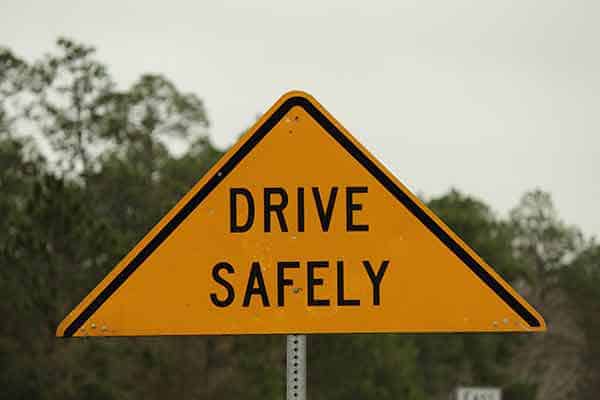Defensive Driving is basically driving in a way that uses safety techniques when facing potential road dangers. It's not just about following rules and regulations; it includes techniques for building safer driving habits. Driving at a safe following distance, obeying the speed limit, ignoring your cell phone, and pay attention to road markings to give yourself the best chance at avoiding a collision.
Defensive driving courses teach drivers to anticipate dangerous road conditions and take appropriate action before an accident occurs. When making such decisions, drivers must take into consideration various factors including road and environmental conditions present at the time they complete a given maneuver.
While defensive driving skills can help you avoid accidents on the road, they aren't a guarantee. If you end up in a car accident, your will want an experienced and talented car accident attorney to help you navigate your case. Our team at Marks Law Group has the knowledge needed to get the best possible result from your case. Call us today or schedule an appointment online for a free initial case review.
Defensive Driving Tips
Driving is an inherently risky thing many of us do every day without thinking. Busy or distracted drivers frequently fill roadways with aggressive or unexpected moves with little or even no consideration for the other drivers on the road. These circumstances are a recipe for accidents and collisions, but using proper techniques and taking the right mentality can make a massive difference on your driving experience.
Learn More: George Car Accident Statistics
A defensive driver should do more than just react to situations on the roadway as they unfold, they should be able to plan ahead and know what to do as a new scenario develops. In fact, basic defensive driving habits start in the driveway before you even start the car. Know the weather forecast for your drive, if it will be wet or icy you should be sure to give yourself enough time to safely navigate these potential hazards without feeling rushed.
Be extra careful on sharp turns and hard braking, and think ahead in case you have to take the turns even slower than you originally thought. If there is a lane with a shoulder, you should stick with it to give yourself a safe place to move to in case of an emergency.

Another important point for defensive driving techniques is paying constant attention to your mirrors. While you won't be able to see everything happening around you on the road at all times, by constantly checking your mirrors and the road conditions, particularly intersection, you will have a better idea of what other drivers are doing. One of the best things you can do to be a safer driver is to pay attention to intersections well before you go through them. Doing so can help you avoid an ugly and easily avoidable collision with a careless driver. The main goal in defensive driving is to anticipate the actions of nearby drivers so you are able to quickly react to dangerous situations.
- Brake early
- Keep a cool head
- Avoid distractions that take your attention off the road
- Plan ahead
- Control your speed
- Pay attention to other drivers so you can react to their moves
- Respect others on the road
- Take care in adverse conditions
Traffic Crashes
Traffic accidents cause losses for individuals and society alike. Car accidents cause nearly 40,000 deaths annually and over 3,000,000 additional injuries each year. Nearly 1/3 or all fatal car crashed involve alcohol, with a similar number involving speeding.

Traffic accidents have different causes, emotional impacts, and costs in terms of dollars spent on them. Defensive driving is intended to lower the risk of accidents through good judgement and more cautious and aware drivers.
Psychological Factors
Drivers must consider numerous variables when they're behind the wheel. Some of these things may not be within your control but they can certainly affect you psychologically, so knowing what to watch out for and how to deal with such situations can be a great help.
Many defensive driving courses will focus on methods for working through negative psychological factors such as stress, fatigue, or road rage. These can help you stay calm, keep up a positive attitude, and increase your focus while driving.
Car Crash Dynamics
In most cases, vehicle accidents are caused by a number of factors that could be prevented if each party involved took certain actions. Speed and place of impact, combined with the size of the object being hit, combine to determine how severe a car accident is. Every accident obviously involves the primary collision between one vehicle and another, or another object, but they also include collisions within the vehicle.
FAQ: How Much Do Lawyers Charge for Car Accident Claims in Atlanta?
These extra collisions, which take place between the driver or passengers and the windshield, seat, dashboard, or other parts of the vehicle, can be just as dangerous or even more so than the initial collision. This is particularly true for anyone not wearing a seat belt at the time of the accident.
Safety Equipment
About 50% of fatal car crashes involve drivers or passengers who were not wearing their seat belt properly. Other critical safety equipment and features in motor vehicles include air bags, car seats for infants and toddlers, and head rests, all of which are designed to protect the occupants of the vehicle and lower the risk of injury or death in a collision.
Drive Defensively
Do not assume anything about another driver's intentions. You may be surprised by some unexpected behavior from drivers who don't follow traffic laws. Be prepared to react to mistakes made by other drivers, and try to anticipate what you will need to do to protect yourself. Avoid distracted driving, be prepared in the event of traffic violations from other drivers, and engage in safe driving practices to give yourself the best chance at avoiding accidents. Consider taking courses to learn more about safe driving techniques, and possibly earn a defensive driving discount for your insurance rates.
If you do find yourself in a car accident, find a local attorney with experience handling accident claims. Their experience will help you prepare your claim, negotiate with the insurance company, and navigate your case should it end up in court. Our talented attorneys at Marks Law Group will work with you to get the best possible result from your case, and can help take some of the stress out of the situation. Car accidents can have a major emotional impact on many people, contact us today for a free initial consultation to see how we an help!
